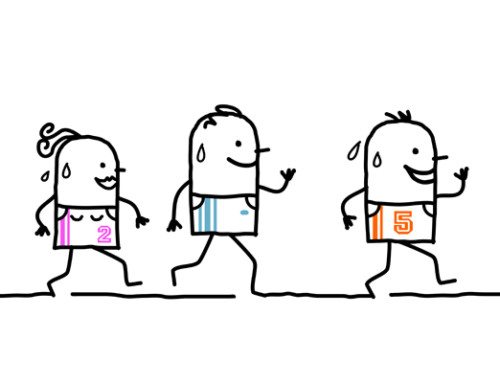In this article, I discuss how to deal with unexpected challenges as demonstrated by Michael Phelps.
In the 2008 Summer Olympics in Beijing, American Michael Phelps sought to make history by becoming the first swimmer to win eight gold medals in a single Olympics. While this was a daunting challenge in and of itself, it became even more so when he was faced with adversity while swimming for the gold in his strongest event–the 200 meter butterfly. In the following sections, I will describe the magnitude of the challenge presented to Mr. Phelps, how he dealt with it and the lessons you can learn from his experience on how to cope with adversity.
The challenge and how Mr. Phelps responded to it
Shortly after the gun went off for the start of the Olympic final of the men’s 200 meter butterfly, the favourite and world record holder had his goggles fill with water. As someone who has competed in many swim races, I can attest that having one’s goggles flood would make racing extremely difficult. In effect, Mr. Phelps was faced with having to swim blind for the entire race.
Despite this daunting obstacle, Mr. Phelps not only won the race, he broke his own world record while doing so. For the athlete with the most Olympic gold medals in history, his performance in overcoming such huge adversity to win the 200 meter butterfly in world record time at the 2008 games epitomized his greatness.
How he overcame the challenge
Mr. Phelps was asked in a post-race interview what it had felt like to swim blind. After all, this was adversity which would lead many athletes to panic and give a sub-par performance (assuming that they would even continue racing after their goggles flooded). He responded in a matter of fact manner that it felt like he imagined it would.
On that point, Mr. Phelps’s excellent coach Bob Bowman had him practice swimming under various adverse conditions in case he encountered them in a competition. One such adverse situation was swimming the entire race with his goggles flooded. Although swimming under such conditions is challenging even for someone of Mr. Phelps’s talent, the challenge was not insurmountable.

That is, he did not need to see where he was swimming because he knew exactly how many strokes it would take for him to swim a length of the pool. So he counted his strokes for each of the four 50-meter legs of the race. Doing so allowed him to swim hard, time his turns at the wall and ultimately time his finish. Rehearsing this stroke-counting strategy allowed him to remain calm and execute his race as planned when his goggles flooded at crunch time.
Michael’s lesson: Use the PR plan to overcome adversity
Mr. Phelps’s success in overcoming adversity on his way to a world record race performance offers lessons you can use in coping with adversity in your life. The skills he used can be applied to adversity in virtually any area such as sports, work, school and relationships.
These skills comprise a tool developed by Dr. Kathleen Mooney which is designed to help people cope with adversity. It is called the PR plan because its three steps all start with the letters ‘PR’—predict, prepare and practice. In Mr. Phelps’s case, the first PR was to predict with the help of his coach the adversity of his goggles flooding. The second PR was to prepare a strategy to deal with this adversity if the prediction came true. The strategy entailed counting his strokes for each length of the pool. The third and final PR entailed his practicing the strategy so that it became a habit.
Like Michael Phelps, you can use the PR plan to deal with adversity in various situations. Among the situations for which my clients have used it are presentations at work and school, writing tests and examinations, having difficult conversations, and attending meetings and social events.
An additional benefit of the PR plan is that not only does it allow you to cope with adversity if it occurs, it helps you to remain calm and focused leading up to your event because you are not preoccupied with worrying about various bad things happening. You aren’t worrying because you are confident in being able to handle them if they occur. This confidence stems from having practiced doing so–just like one of the greatest athletes of all time.
May you ‘be like Mike’ in preparing to cope with adversity,
Dr. Pat






Leave A Comment